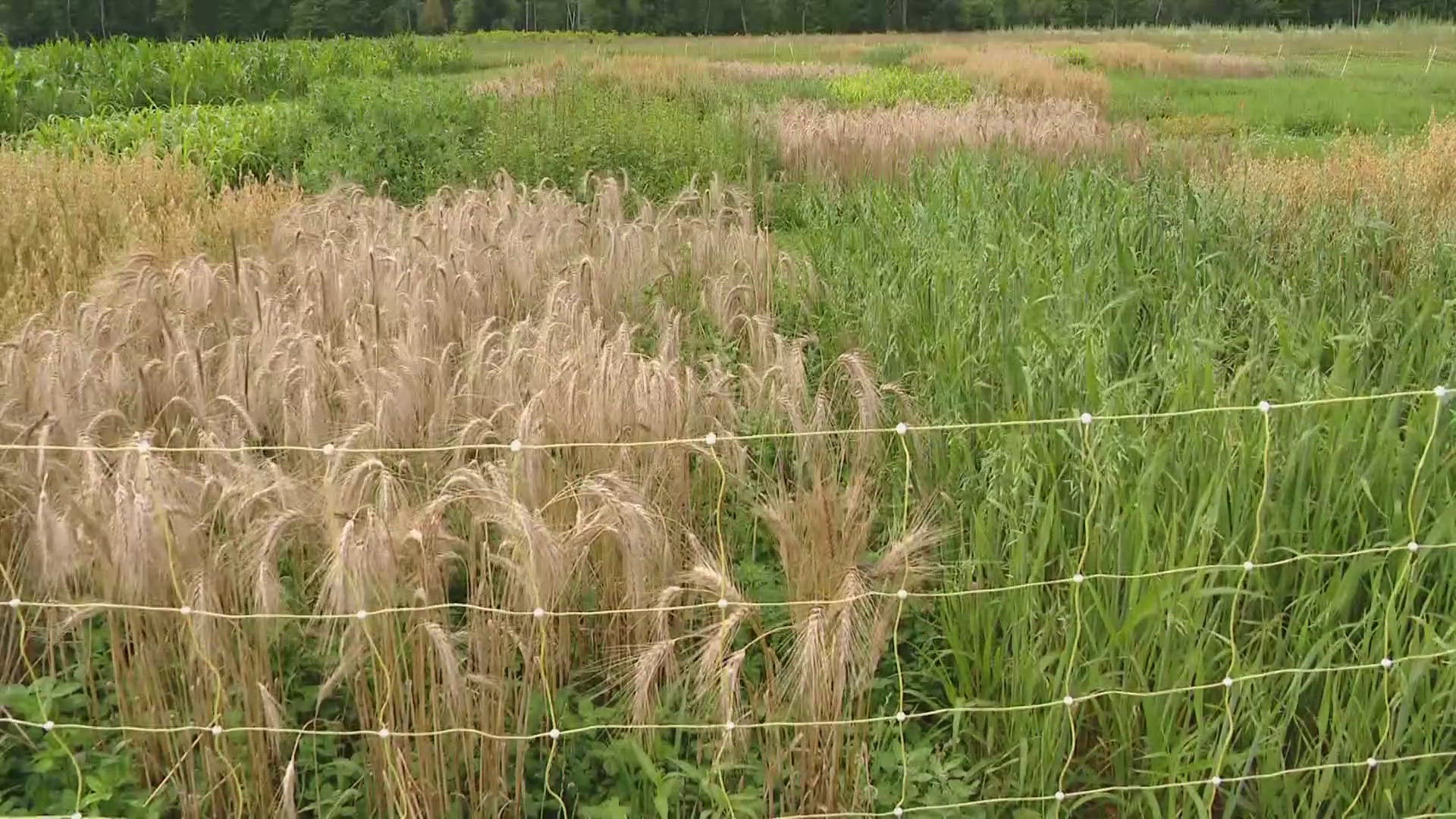UNITY, Maine — State regulators say as many as 70 farms across Maine have been impacted by contaminated from toxic chemicals known as PFAS.
The compounds were in municipal sludge trucked to farms and used as fertilizer. Promising research could help farms pivot to new crops that can absorb the chemicals and still be safe for consumers.
University of Maine graduate student Sonora Ortiz is knee-deep in an ongoing study that is shedding new light on crops that could be grown on dozens of contaminated farms throughout the state.
The research is focused on how these plants draw PFAS chemicals from the soil, which is a process known as phytoremediation, and they're studying variety of crops from corn to grain and oats.
"The PFAS will accumulate mostly in the crop's leaves and then in the stem and very little to none in the grain itself," Ortiz explained.
The living research project is on Sue Hunter's 100-acre former dairy farm in Unity. The fields are contaminated with different levels of PFAS chemicals. The source is municipal sludge shipped and used as fertilizer, a state-approved practice that took place for decades. The study involves four plots with different species of grains and grasses, which are also grown to feed grazing livestock.
Lawmakers, agricultural producers, and scientists toured the project Tuesday. Researchers hope to pass recommendations to farmers who have pivoted to new crops.
"Switching species, plant types, and harvesting methods can impact how much PFAS ends up in the final product," Ortiz said.
The Agricultural Council of Maine sponsored the visit to the farm.
"If we can change production systems to crops that are less likely to be contaminated, we are going to find farmers a path forward," Sarah Alexander, the executive director of the Maine Organic Farmers and Grower Association, said.
Hunter said she is excited about the prospect of being able to raise cows again.
"To be able to let them go out and pasture in the fields, you know, and being able to eat this grass and not have it affect their bodies," Hunter exclaimed.
More findings on the uptake of chemicals in grasses and crops could be released this fall. The project will continue for the next several years.

